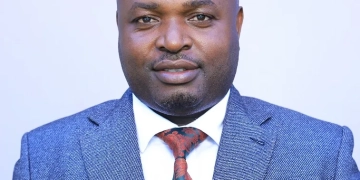
is a Political Sociologist
Alumna – London School of Economics and Political Science
Dear Readers
Byung-Chul Han’s – “The Burnout Society” exposes a world where people, driven by internalised pressure, work themselves into exhaustion. The West, after centuries of industrialisation, has reached its limits, work is endless, rest is scarce, and society is caught in an inescapable cycle of self-exploitation. Now, Western nations are searching for ways to slow down, reclaiming the very things they abandoned in the pursuit of progress.
Yet Africa, still largely unindustrialised, is eager to embrace the very system the West is now rejecting. We have convinced ourselves that industrialisation, unchecked capitalism, and mass production are the only paths to prosperity. But does anyone realise that the West itself no longer believes in its own model?
The Industrial Mirage
Three centuries ago, industrialisation transformed the West. It brought economic growth but also exploitation, pollution, and social alienation. Han warns that modern individuals believe they are free, yet they willingly enslave themselves to work, convinced that their worth is measured by productivity.
Africa is now chasing this same path, believing that mass production, rapid urbanisation, and endless economic growth are the key to development. But if the West itself is now stepping away from this model, why are we running towards it?
A Merry-Go-Round of Civilisation
History does not move in a straight line; it moves in cycles. The West, having industrialised, is now rejecting hyper-productivity, environmental destruction, and unsustainable capitalism. Africa, still holding on to communal life, local economies, and a more balanced rhythm, is about to discard these very things, just as the West desperately tries to recover them.
● The West is moving towards sustainability; Africa is embracing mass industrialisation.
● The West is rethinking work-life balance; Africa is glorifying hustle culture.
● The West wants organic, local food; Africa is embracing genetically modified imports
This is not catching up it is repeating history without questioning its cost.
The Real Question: Do We Have to Follow This Path?
Han’s work forces us to ask: Must Africa go through the full cycle of industrialisation, exploitation, and burnout before realising that capitalism’s limits were reached long ago? Instead of blindly copying a model that has already collapsed, we should ask:
● Can we develop without destroying our environment?
● Can we modernise without erasing community and identity?
● Can we build economies that prioritise well-being over profit?
A Different Path Forward
Africa has a rare opportunity, to learn from the West’s mistakes instead of repeating them. The West had no guide when it industrialised; it simply charged forward. But we have history as a warning. Instead of chasing a model that even its creators are abandoning, Africa can choose a new path, one that values progress without sacrificing humanity or the planet.
Because while Africa rushes to industrialise, the West is not just moving on from capitalism, it is planning to move off the planet altogether. Space exploration and colonisation, once the stuff of science fiction, are now serious policy agendas. As African economies ramp up industries that damage the environment, the wealthiest nations are investing in escaping it.
If we do not stop and rethink our direction, we will wake up to find that Africa has finally “caught up”, only to realise that the West has already moved on. We will have traded our communal societies for isolated individuals, our natural balance for relentless efficiency, and our thriving communities for concrete jungles.
By then, what the West longs to regain will already be lost, and Africa will have lost far more than economic power: it will have lost its soul.
Ciao
The writer Author, Gertrude Kamya Othieno is a Critical Political Sociologist
Alumna – London School of Economics and Political Science
gkothieno@gmail.com
AFRICA’S STRENGTH IS KNOWLEDGE











Discussion about this post